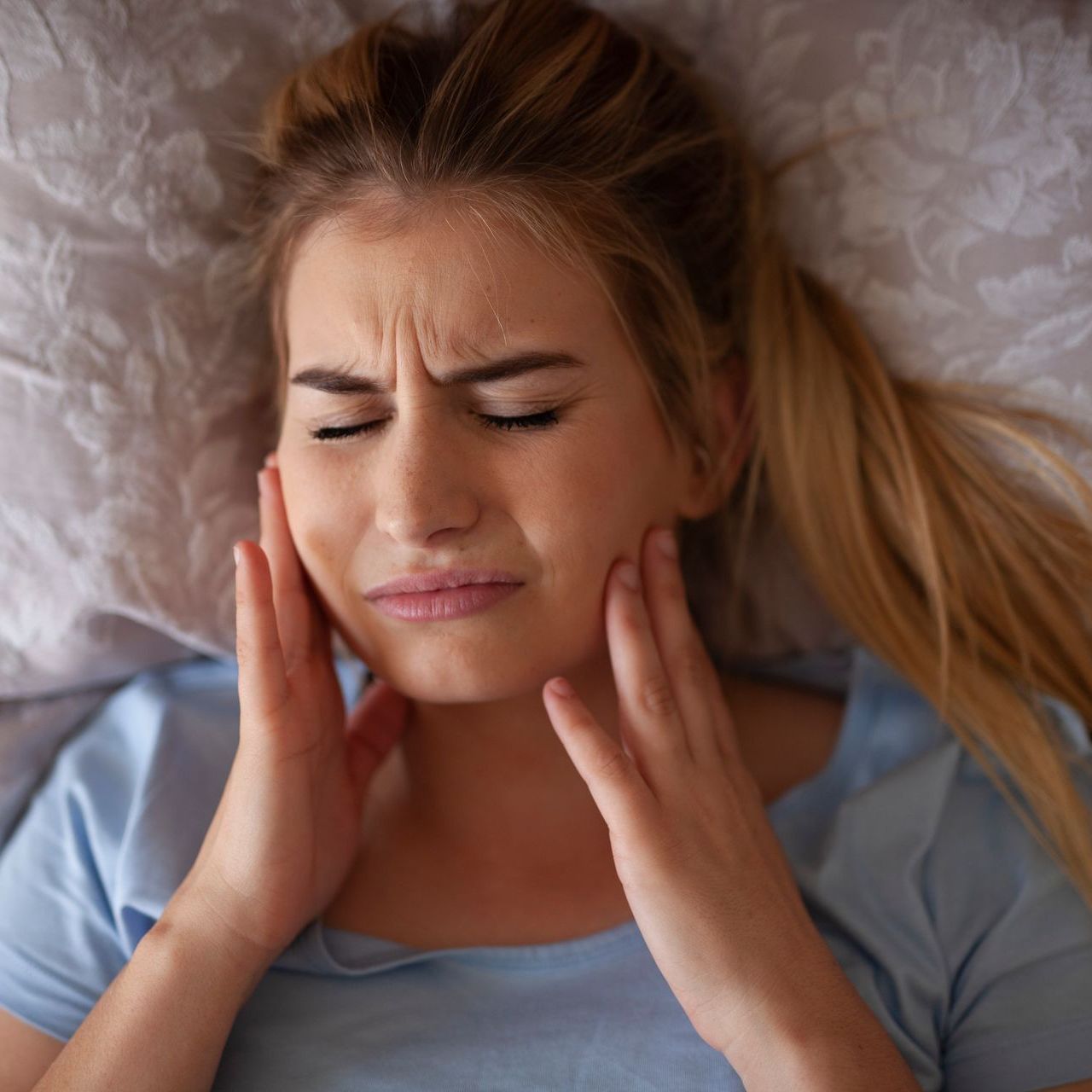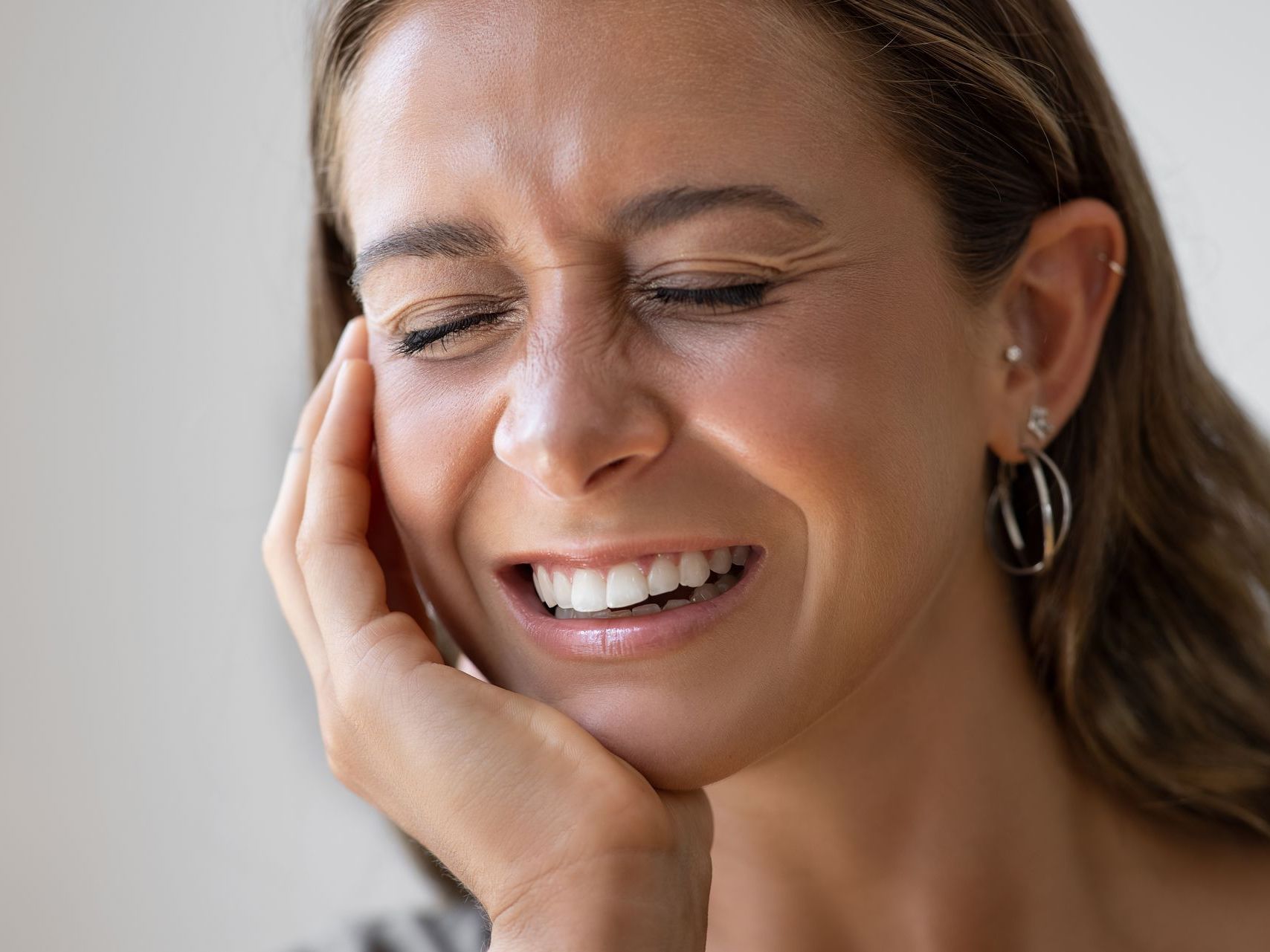Arverne Dental: Bruxism
home / Services / Bruxism
Arverne Dental's Bruxism page provides comprehensive information on this common dental condition, including how it can affect oral health. Our practice, led by Dr. Lyuba Taft, is committed to providing the Rockaway Beach community with high-quality dental care.
What is Bruxism
Bruxism is a medical condition characterized by the unintentional clenching or grinding of teeth. Although mild cases of bruxism may not pose any serious threats, chronic bruxism can result in a wide range of dental issues, such as tooth sensitivity, headaches, jaw pain, and even tooth loss. If left untreated, the condition may cause long-lasting discomfort, difficulty chewing, and damage to the teeth and jawbone.
Signs & Symptoms
Bruxism is often unconscious, but it can manifest in several ways that indicate its presence and the potential impact on your oral health and well-being. These manifestations include:
Grinding or Clenching Teeth:
The rhythmic grinding of teeth or clenching can occur while asleep or awake. This can cause audible noises, loud enough to wake up sleep partners and individuals.
Chipped, Worn, or Flattened Teeth:
Constant grinding can cause visible wear, flattening, or chipping on the surface of teeth. This abrasion over time can damage the integrity and structure of teeth.
Jaw Tightness or Pain:
The repetitive contractions that occur with clenching or grinding can cause muscle tension in the jaw region. It can cause discomfort, soreness, or a feeling of tightness in the jaw muscles. This is especially true when you wake up or throughout the day.
Headaches in the Morning:
Many people with bruxism suffer from headaches in the early morning. These headaches can range in severity from mild to severe and are usually attributed to the strain on the jaw muscles or temporomandibular joints (TMJ) while sleeping.
Earaches:
Bruxism may also cause referred ear pain, leading to earaches and a feeling of fullness. This discomfort could be caused by the proximity of the temporomandibular joints to the ear canals and surrounding structures.
Facial Pain:
In addition to jaw discomfort, teeth grinding or clenching can cause facial pain and tenderness. This may affect areas like the cheeks, temples, or jawline. The pain can worsen by teeth grinding and clenching for long periods.
Increased Sensitivity to Stimuli:
Due to the wear and tear of the protective enamel on the teeth, bruxism can cause individuals to experience increased sensitivity to stimuli, especially hot, cold, or sweet. This sensitivity is caused by the dentin underneath becoming more susceptible to external stimuli.
Tight or Tired Jaw Muscles:
Even after resting, bruxism may cause the jaw muscles to feel tired, tight, or overworked. This feeling of tightness or fatigue may last throughout the day and affect jaw mobility.
It is important to recognize these symptoms and signs of bruxism to receive prompt treatment and diagnosis. This will help you avoid dental complications and improve your quality of life. We encourage you to contact Dr. Lyuba Taft of Arverne Dental if you suspect you are experiencing bruxism. She will provide you with a personalized evaluation and treatment recommendation.
Get the most out of it!
New Patient Special
Exam, and all Necessary X-Rays for only $99
*Restrictions may apply
Causes and Effects of Bruxism
A variety of factors can cause the involuntary grinding of teeth or clenching. These include psychological stressors, physical conditions, and lifestyle habits. Understanding the causes of bruxism will help you to manage and treat it effectively. These may include:
Anxiety and Stress: Psychological anxiety and stress are the main causes of bruxism. Stress can be a result of work, finances, or relationships. It may also cause people to unconsciously grind their teeth or clench them as a way of coping with the stress.
Abnormal Bite Alignment: Malocclusion or abnormal bite alignment can lead to bruxism. The jaw muscles can compensate for a misalignment of the upper and lower teeth by clenching or grinding to find a more comfortable position. This misalignment over time can worsen bruxism and other dental problems.
Sleep Apnea and Other Sleep Disorders: Sleep disorders, such as obstructive apnea, can increase the risk of bruxism. Interrupted breathing episodes during sleep can cause arousal, disrupt sleep architecture, and lead to teeth grinding.
Certain Medications:
The use of certain medications can cause bruxism, especially those that alter the neurotransmitter system or affect the central nervous system. Psychotropic drugs, including selective serotonin reuptake inhibitors (SSRIs), antipsychotics, and stimulants, have been linked to an increased risk of bruxism.

Lifestyle Factors (such as excessive alcohol consumption or caffeine intake): Lifestyle decisions, including excessive drinking and caffeine intake, can cause bruxism. Caffeine and alcohol are central nervous system stimulants that can increase muscle activity, which in turn may exacerbate bruxism. This is especially true during times of intoxication and withdrawal.
Smoking: Tobacco usage (such as smoking cigarettes) has been associated with an increased prevalence of bruxism. Nicotine, an addictive substance found in tobacco products, can cause muscle contractions and lead to jaw clenching. Smoking-related respiratory problems can also aggravate bruxism, particularly during sleep.
Identifying and addressing the underlying causes of bruxism is important to developing targeted treatment strategies and preventing further dental complications. We encourage anyone who suspects they may be experiencing bruxism or has concerns about the potential causes of bruxism to book a consultation with Arverne Dental's Dr. Lyuba Taft for a comprehensive evaluation and customized treatment recommendations.
The Effects of Bruxism
If untreated, bruxism may lead to severe dental complications, including:
- Wear and tear of the teeth.
- Temporomandibular joint (TMJ) disorders.
- Chronic jaw pain.
- Headaches and migraines.
- Sleep disturbances.
Treatment Options
Arverne Dental offers personalized treatment plans for bruxism, including its causes. Treatment options include:
- Protect your teeth while you sleep with a night guard or mouth splint.
- Reduce anxiety and tension with stress management techniques.
- Orthodontic treatment can correct issues with bite alignment.
- Relaxing medications to manage muscle pain or relax muscles.
- Avoiding caffeine and alcohol is one way to modify your lifestyle.

Book Your Consultation Now!
We encourage you to contact Dr. Lyuba Taft of Arverne Dental if you are unsure if you suffer from bruxism or are exhibiting any of the above symptoms. Our team is dedicated to providing you with personalized care and helping you achieve optimal dental health.
Call us to
schedule your appointment today and start on the path toward a happier, healthier smile!





